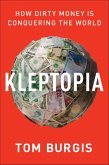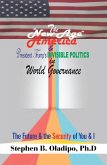"Your pen is your biggest enemy" is the kind of warning M. P. Prabhakaran says he used to receive from his friends every time he published a provocative social or political commentary. He published them in The East-West Inquirer, an online monthly, of which he is editor and publisher. He has cited the warning in the preface to this book. The preface also says that, pointing to the subject of the commentary, those well-meaning friends would follow their warning with the question: "Why bother, if it doesn't affect you in any way?"
In response, the preface goes on to say, Prabhakaran would throw the words, "Why bother, if it doesn't affect you in any way?" back at them and then add: "History is full of examples of the disastrous consequences of this attitude." He would remind his friends that the powers that be got away with the atrocious things they did because people were either too scared to speak up or the atrocious things did not affect them personally. To emphasize the point, Prabhakaran would draw their attention to the immortal words of the Lutheran pastor Martin Niemöller:
"When the Nazis arrested the Communists, I said nothing; after all, I was not a Communist....
When they arrested me, there was no longer anyone who could protest." [The English translation is by Bob Berkovitz.]
This book is a collection of some of the articles published in The East-West Inquirer over the past two decades. The articles are Prabhakaran's ways of speaking truth to power.
In response, the preface goes on to say, Prabhakaran would throw the words, "Why bother, if it doesn't affect you in any way?" back at them and then add: "History is full of examples of the disastrous consequences of this attitude." He would remind his friends that the powers that be got away with the atrocious things they did because people were either too scared to speak up or the atrocious things did not affect them personally. To emphasize the point, Prabhakaran would draw their attention to the immortal words of the Lutheran pastor Martin Niemöller:
"When the Nazis arrested the Communists, I said nothing; after all, I was not a Communist....
When they arrested me, there was no longer anyone who could protest." [The English translation is by Bob Berkovitz.]
This book is a collection of some of the articles published in The East-West Inquirer over the past two decades. The articles are Prabhakaran's ways of speaking truth to power.
Dieser Download kann aus rechtlichen Gründen nur mit Rechnungsadresse in A, D ausgeliefert werden.









